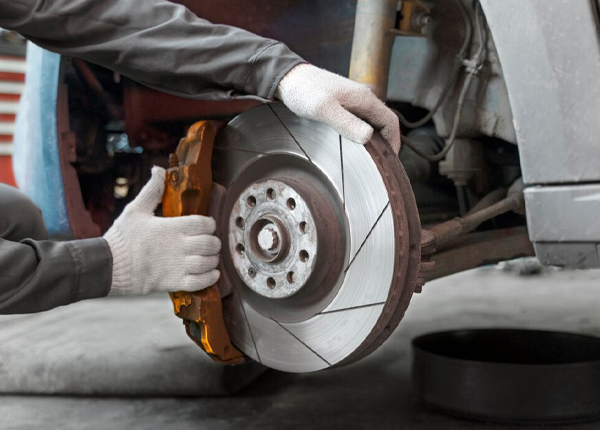The fan keeps running when the car is off: causes and solution
If your radiator fan is still running when you turn off your car’s engine, don’t worry. This usually happens to many vehicles. To help understand, I will discuss why the fans keep running when the car is off: causes and solution.
One of the reasons the fan keeps running even after turning off the engine is because the engine is too hot. Perhaps your coolant level is low, which can lead to reduced cooling in the cooling system. This forces the fan to do extra work to cool the engine. As such, the fan continues to run even after the engine is turned off.
Before this happens, you will notice a few signs. One of the common symptoms is that the engine is overheating. Some other symbols include a shorted signal wire and the Check Engine light on your dash coming on suddenly.
Read on to find out more about why the fan in your car keeps running even after turning off the engine, the possible reasons and how you can fix this problem.
Also, we hope you find the links here helpful. We may get a commission if you buy something through a link on this page, so thanks.
The fan keeps running when the car is off
It could be due to an overheating motor.
Don’t worry too much when your car’s radiator fan keeps running even after you’ve turned off the engine. This is common in car engines. There are several reasons why this can happen and there are also appropriate solutions for this problem.
One reason this can happen is if your engine overheats. Your engine is likely overheating because the coolant level in your cooling system is already low.
Radiator fan will work overtime
This causes the fan to work overtime to keep the engine cool. That is one of the reasons why the fan keeps running when you turn off the engine.
Car engines are designed to run optimally when hot, but not too hot. The fan provides a cooling effect so the motor does not overheat. When you turn off the engine, the fan is supposed to stop and cooling air will no longer flow into the engine bay.
This will cause an increase in motor temperature, which usually causes the fan to stop. It usually happens with vehicles like:
- bmw,
- toyota
- Mercedes Benz.
The fan can run an additional three to five minutes.
coolant not flowing
Normally, the refrigerant circulates throughout the refrigeration system. When the engine runs, it flows into the radiator, which expels the heat. However, there are times when you turn off the engine and the coolant does not flow.
This situation keeps heat trapped in the system, slowing the engine’s ability to cool down. So even if the engine is off, the fan keeps running for a few minutes to help cool down the engine.
However, if your car’s HVAC fan continues to run even if your engine doesn’t overheat, you can manually override your automatic system. Simply turn off the fan limit switch by setting it to manual override and the fan will stop running.
Why doesn’t the fan turn off?
If you allow the fan to run for a long time after turning off the engine, the battery will be depleted. Therefore, you need to deal with this problem. First, you need to know the probable cause why this may be happening. There are many reasons for this:
1. Low coolant level
If the coolant level is too low, you may experience this problem. Your battery will be completely drained because it is the only one keeping the fan running when you have already turned off the engine.
The coolant level can drop dangerously if there is a leak in the coolant system or reservoir. So those are the first things to check if your fan is running longer.
Check the coolant reservoir if it is already below the minimum mark. Checking the cooling system will be much more complicated. A professional HVAC refrigeration technician should do it.
2. Electrical wiring problems
There are also cases, albeit rare, when problems in the electrical wiring of the refrigeration system are to blame. Perhaps the cables are badly connected or damaged. They will lead to a malfunction of the cooling system.
In such cases, the only way to solve the fan problem is to check where the wires are badly connected and correct the connection immediately. Hopefully the fan will stop running when you turn off the engine. If it still works then there must be another problem.
3. Leaks
Leaks in refrigerant or your system can present themselves in many forms. It could be a malfunctioning thermostat, a poorly connected hose, or a hole or crack in the radiator. Any of these things can cause coolant to leak out of the system, causing its level to drop.
As a result, the fan will continue to run while trying to keep the engine temperature at the optimum level.
4. Defective temperature sensors
The refrigeration system uses various sensors to manage the operation of the refrigeration system components. They are installed near the engine thermostat. Its job is to measure the release temperature of the coolant or thermostat.
Sensors transmit information or signals about the engine’s operating temperature to the control system. Your car’s computer system will use the information or data about engine operating temperature to modify or continue engine operation.
This is so that the cooling system can continuously run at the correct operating temperature. At this point, the cooling fan can be turned on or off when the data it receives from the sensors is received by the control system.
For example, it can send signals to open the gas recirculation. This causes the fan to run continuously for an extended period after the engine is turned off. Checking the status of the sensors will help fix this problem.
5. Faulty PCM or ECU
If your car’s power control module (PCM) or electronic control unit (ECU) is not working properly, it could also cause the cooling fan to keep running after turning off the engine.
The ECU is responsible for the efficient operation of many electrical components in your car, while the PCM takes control of the engine, transmission, and other parts of your vehicle.
If the PCM or the ECU or both are faulty, it can cause your cooling system fan to run even after you have turned off the engine. Many things can cause these two electrical systems to malfunction.
There will also be cases where these two electrical systems cannot correctly recognize or interpret the signal or information they receive from the temperature sensor. In such cases, they may mishandle the operation of the cooling fan.
6. Damaged radiator
If the radiator is damaged, it cannot work efficiently. The damage can be in the form of cracks in its parts or structure or deformations or leaks in its fins.
Any of these defects can cause it to not work properly. The result: the radiator or cooling fan can still work after turning off the engine.
7. Defective fan relay
Another possible cause of the problem is a malfunctioning fan relay. It’s the engine cooling fan switch. If this relay experiences any problems, it will not be able to transmit the information it receives from the temperature sensors or the ECM.
8. Leak in heater core
The heater core is responsible for heating the cabin of the car. If there is a leak in the heater core, the coolant level will drop and the fan will continue to run for some time. A core leak can occur due to damage, lack of maintenance, or corrosion.
Again, why does your fan stay on when you turn off your car? A fan that keeps running when the car is off may be due to a low coolant level or a leaking water pump.
What can you do to fix the fan that keeps running when the car is off?
This problem can be fixed. Here are several things that can be done to resolve this issue:
1. Fill the refrigerant
Check the coolant level in your reservoir. If it is below the minimum level, fill it up. Be sure to use the same type of coolant inside the reservoir. Check the coolant level to see if the correct level is maintained for a reasonable amount of time.
As you continue to drive your car, the coolant level will naturally decrease. However, if it drops below the minimum level in a short time, there is probably a leak in the system. That’s the reason your coolant level is dropping so fast.
This will cause your engine to overheat, in addition to our current issue of the coolant not turning off after the engine has been turned off.
2. Disconnect the battery
By disconnecting the car battery, the cooling fan will turn off quickly. Do this by disconnecting the negative cable from your battery terminal. This will prevent draining of battery juices.
3. Check the fan relay
To check/test if the relay you are using is working or not, swap it out with a known working relay.
If the new relay stops the fan from running when you turn off the engine, then the relay you are currently using is no longer working. You must replace it with a new relay of the same specifications.
Another way is to use a multimeter to test the condition of the fan relay. Test continuity on existing relay. Use the resistance mode of the multimeter. Set the ohm range to the minimum range. Connect the multimeter leads across the relay coil terminals.
The multimeter will read 40 to 120 ohms if the relay works well. If the relay is bad, there is no continuity, which means it is open and cannot carry any electrical input. You have to replace it.
How much will it cost to repair a faulty cooling fan?
If you need to replace a faulty engine cooling fan, it can cost anywhere from $300 to $400. The actual cost depends on the make and model of your car. Repair or replacement work is very simple.
If you’re handy with ordinary repair tools or gadgets, you can even do it yourself and save on labor costs, which eat up a large part of the total repair/replacement cost. Refrain from using a defective cooling fan because it can damage your engine, which may cost you more to repair.
In conclusion
Your car’s radiator fan may continue to run after turning off the engine, probably due to too high engine temperature. This extra heat forces the fan to do more work to cool the engine, even if it’s already off.
There are a few signs before this happens that you need to be aware of. One of the symptoms is if the engine overheats. Other symptoms that may manifest are the Check Engine light on the dash coming on or a short in a signal wire.



